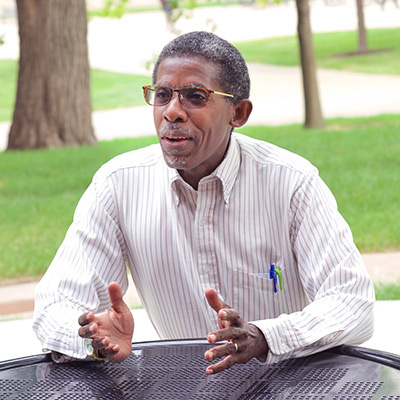A new study led by E. Dale Abel, MD, PhD, director of the Fraternal Order of Eagles Diabetes Research Center at the University of Iowa, shows how diabetes affects an important mediator of blood clot formation called platelets. In particular, the study, published in the journal Diabetes, shows that platelets from diabetic mice have increased glucose uptake and metabolism, which promotes overactivation of platelets and excess blood clotting.
The findings suggest that blocking glucose metabolism in platelets might provide a target for reducing abnormal blood clotting in patients with diabetes.
Platelets are tiny cell fragments that, when activated, promote blood clot formation to stop bleeding or repair injured blood vessels. Previous work has shown that type 1 diabetes increases platelet activation.

Background on blood clots and diabetes
Abel explains that normal blood clotting is critical for health. But when blood clots form too easily or unnecessarily they can cause life-threating problems, like stroke or pulmonary embolism (blood clots in the lungs). Diabetes increases the risk of blood clots, and up to four in five people with diabetes are at risk of dying from a clot-related cause, according to the American Heart Association.
Using a mouse model of type 1 diabetes, the study found that in the context of high blood glucose levels caused by diabetes, glucose uptake and metabolism by platelets is increased and, as a consequence, the platelets are hyperactivated and there is more blood clotting. When the platelets were genetically altered so they could no longer take up glucose, the activation was reduced and the diabetic mice were protected from abnormal blood clotting.
“At the highest level, the study shows how in diabetes, platelets use more glucose, which activates them leading to an increased propensity to form blood clots,” explains Abel, who also is professor and chair of internal medicine at the UI Carver College of Medicine. “When the expression of glucose transporters are genetically inhibited, this degree of platelet overactivation is prevented and the survival of animals increased in an experimental model of excessive blood clotting (pulmonary embolism).”
The research also indicates that the glucose transporter proteins (GLUT1 and GLUT3) that ferry glucose into platelets play an important role in the activation process. Future research focusing on specific ways to selectively block platelet glucose metabolism could lead to novel ways to limit platelet overactivation in diabetes or other disorders associated with platelet hyperactivation.
In addition to Abel, the research team included UI scientists Trevor Fidler, Alex Marti, and Katelyn Gerth, and researchers at the University of Utah, including Elizabeth Middleton, Robert Campbell, Matthew Rondina, and Andrew Weyrich.
The study was funded in part by grants from the National Heart, Lung and Blood Institute. Both Abel and Weyrich are established investigators of the American Heart Association.